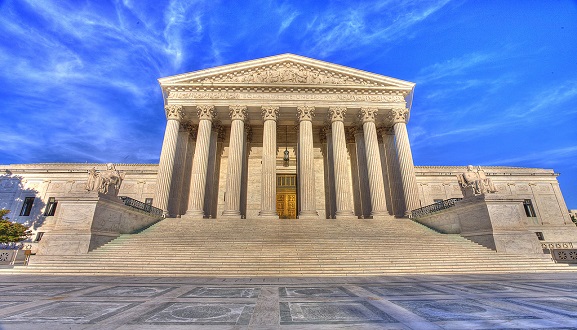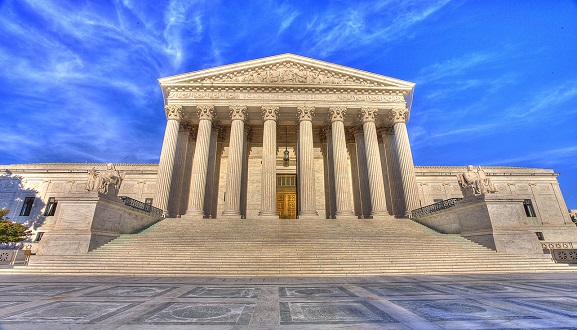SCOTUS 2013 – A Retrospective
- by
- Dec 31, 2013
- Lawsuits, Supreme Court Rulings
- Reviewed by: Matt Riley


With 2013 almost behind us, we bring you some of the more interesting Supreme Court decisions of the year.
United States v. Windsor
In a 5-to-4 decision, the Supreme Court held that same-sex spouses are entitled to the same federal benefits as heterosexual spouses in states that allow same-sex marriage.
Writing for the majority, Justice Kennedy said, “By seeking to displace [the protection of personhood and dignity] and treating [gay and lesbian] persons as living in marriages less respected than others, the federal statute is in violation of the Fifth Amendment.”
In his dissent, Justice Scalia took issue with the strongly worded majority opinion. He writes that, “formally declaring anyone opposed to same-sex marriage an enemy of human decency, the majority arms well every challenger to a state law restricting marriage to its traditional definition.”
Which is weird, because Scalia’s usually for people being well armed.
Shelby County v. Holder
This year, the court struck down a key part of the Voting Rights Act of 1965. The court decided that the method used to decide which state and local governments had to get permission to change their voting laws was dated and unconstitutional.
In her dissent, Justice Ginsburg said, “Throwing out preclearance when it has worked and is continuing to work to stop discriminatory changes is like throwing away your umbrella in a rainstorm because you are not getting wet.”
Writing for the majority, Chief Justice Roberts saw our current situation as more of a drizzle than a rainstorm. “Our country has changed, and while any racial discrimination in voting is too much, Congress must ensure that the legislation it passes to remedy that problem speaks to current conditions.”
Fisher v. University of Texas
In a small victory for race-neutral college admissions, the court decided (7 to 1) that programs using race as a basis for admissions had to be justified under the “strict scrutiny” standard. This should make it more difficult for the University of Texas to defend its admissions process, but it’s far from the final word on the topic.
Moncrieffe v. Holder
In a 7-to-2 decision, the court held that smoking pot with your friends isn’t an aggravated felony. Justices Thomas and Alito dissented. Which is, well, just, like, their opinion, man. Though we can’t say that we’ve ever seen someone smoking pot aggravated. Hungry, maybe.
Maryland v. King
In a 5-to-4 decision, the court held that the police can take a DNA sample from a suspect arrested for a serious offense.
In his dissent, Justice Scalia wrote that, “because of today’s decision, your DNA can be taken and entered into a national database if you are ever arrested, rightly or wrongly, and for whatever reason.” He didn’t realize that they already have this information. In fact, they’re watching you reading this right now.
These are just a few of the decision that caught my attention. I’m sure I missed some important cases, so feel free to post ’em in the comments.
Have a happy new year!
Search the Blog

Free LSAT Practice Account
Sign up for a free Blueprint LSAT account and get access to a free trial of the Self-Paced Course and a free practice LSAT with a detailed score report, mind-blowing analytics, and explanatory videos.
Learn More
Popular Posts
-
logic games Game Over: LSAC Says Farewell to Logic Games
-
General LSAT Advice How to Get a 180 on the LSAT
-
Entertainment Revisiting Elle's LSAT Journey from Legally Blonde








